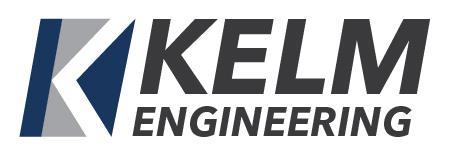Call Us 281-940-KELM

Understanding Category IV Vibration Analysis Certification
Kelm Engineering
Effective vibration analysis is essential to maximizing machinery uptime. However, vibration analysis is a complex subject that requires detailed technical training and years of experience. The right vibration analyst can save you tens of thousands of dollars by detecting machinery faults prior to failure. Having our vibration analysts involved with analyzing your machinery can help identify complex issues. This reduces or even eliminates the need for unscheduled down time or failures, which can be extremely costly.
UNDERSTANDING CERTIFICATION LEVELS FOR VIBRATION ANALYSIS
Certifications in vibration analysis are a great way to understand more about what an analyst can do. Each certification level defines the training received. The levels also define what tasks the analyst is qualified to perform. The categories are ranked I-IV, with category I being the introductory technician level certification, and category IV being the most advanced consultant level. Here at Kelm, all of our engineers are certified at a level III or higher, and qualified to perform most or all tasks associated with vibration analysis. All our certification was attained through the Vibration Institute, the leading organization in Vibration Analysis.
WHAT DOES IT TAKE TO BE A CATAGORY IV VIBRATION ANALYST
Each category, I through IV, defines not only what tasks your vibration analyst is qualified to perform, but also the amount of experience that must be attained before achieving certification. Those with Category IV certification are able to diagnose and solve some of the most complicated problems, and fully qualified in all tasks related to vibration analysis.
Based on the definition provided by the Vibration Institute, “Category IV Vibration Analysts are individuals who understand the theory of mechanical vibrations, advanced vibration analysis techniques, and signal analysis. They shall be qualified to direct condition monitoring programs, perform major diagnostic efforts, and perform and recommend corrective actions and design modifications.”
This certification requires a recommended 60 months of experience in vibration analysis, and 130 hours of training. Training includes receiving certification in categories I-III plus an additional 64 hours of work. At the completion of the training, a vibration analyst certification exam will be administered. This is the final step in receiving certification.
CONTINUING VIBRATION ANALYSIS EDUCATION
Here at Kelm, our team is not only certified to at least category III, but also offers training courses for others to receive certification in categories I-IV. This something we do annually through the Vibration Institute, and our work ranges from teaching basic to advanced courses. Outside of our vibration analyst certification training, we also offer technical training courses on subjects within machinery dynamics around the Greater Houston area. Whether you are in search of a qualified team with category III or higher certification, or are looking to provide continuing education to your own team, give us a call today.

